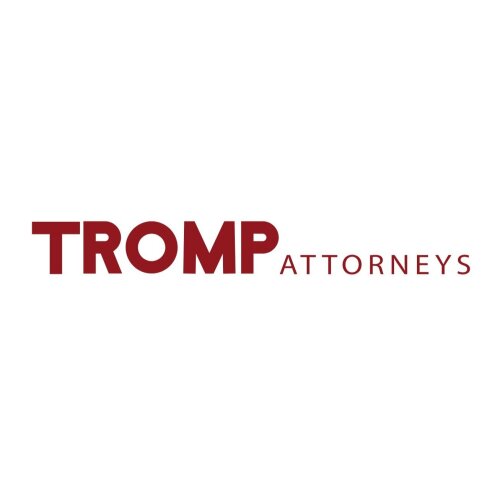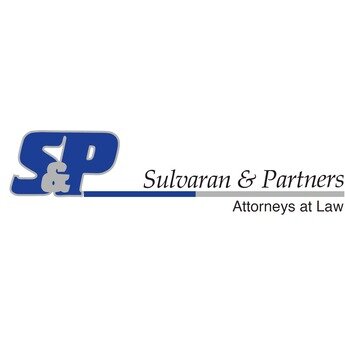Best Education Law Lawyers in Curaçao
Share your needs with us, get contacted by law firms.
Free. Takes 2 min.
Or refine your search by selecting a city:
List of the best lawyers in Curaçao
About Education Law in Curaçao
Education Law in Curaçao encompasses the legal frameworks, policies, and regulations that govern the operation and management of educational institutions and the rights and obligations of educators, students, and parents. This area of law covers aspects such as school administration, curriculum standards, student assessments, teacher employment, and student rights, among others. The legal landscape is influenced by international education standards, national policies, and local regulations to ensure every student has access to quality education.
Why You May Need a Lawyer
There are several situations in which individuals or educational institutions might require legal assistance in the area of Education Law in Curaçao:
- Disputes over student admissions or expulsions
- Matters relating to special education and accommodations
- Employment issues involving teachers and administrative staff
- Challenges to educational regulations or policies
- Issues involving student rights, including bullying or discrimination claims
- Compliance with educational standards and legal requirements
- Legal issues related to school safety and liability
- Handling of grievances or disciplinary actions
Local Laws Overview
Education Law in Curaçao is shaped by a combination of national statutes, decrees, and ministerial regulations. Key aspects include:
- Compulsory Education: Laws mandate schooling for children of specific ages, with legal obligations for parents and guardians.
- Curriculum Standards: Regulations specify the educational curriculum to ensure consistent quality and alignment with national objectives.
- Teacher Qualifications: Legal criteria outline the requirements for teacher certifications and employment standards.
- Student Rights and Welfare: Laws protect student welfare, ensuring a safe, non-discriminatory educational environment.
- Special Education: Provisions exist for the inclusion and support of students with disabilities or special needs.
- School Governance: Regulations govern the management and operation of public and private educational institutions.
Frequently Asked Questions
What is the age range for compulsory education in Curaçao?
In Curaçao, compulsory education generally applies to children between the ages of 4 and 18, requiring parents to ensure attendance at an approved educational institution.
Are there legal provisions for homeschooling in Curaçao?
Yes, homeschooling is permitted under certain conditions. Parents may need to obtain approval from educational authorities and demonstrate that the home curriculum meets national standards.
How can parents address bullying in schools?
Parents should report bullying incidents to school authorities as schools are required to have anti-bullying policies and procedures. Legal action can be considered if issues are not resolved satisfactorily.
What are the rights of students with disabilities?
Students with disabilities have the right to receive appropriate accommodations and support for their educational needs, ensuring access to a fair and equitable education.
Can a teacher be dismissed without cause?
No, teachers generally cannot be dismissed without cause. Employment laws require that dismissals be based on valid reasons following due process.
What should I do if I disagree with a school's decision regarding my child?
It is advisable to first approach the school administration or board for resolution. If unresolved, seeking legal advice or mediation may be necessary.
Are there legal consequences for failing to comply with school attendance laws?
Yes, parents or guardians may face penalties if they fail to ensure their child's attendance at school without valid reason or exemption.
How is the quality of education monitored in Curaçao?
The Ministry of Education oversees the quality of education, implementing policies and conducting inspections to ensure compliance with educational standards.
What legal actions can be taken against discrimination in schools?
Discrimination claims can be brought to educational authorities for investigation. Legal recourse may also be pursued through human rights avenues if necessary.
How can I find legal resources or help regarding Education Law?
Legal resources can be accessed through professional legal services, educational authorities, or organizations focusing on education rights and policies.
Additional Resources
For further assistance or information regarding Education Law in Curaçao, consider reaching out to the following resources:
- Ministry of Education, Science, Culture, and Sports: Main regulating body for education policies and standards.
- The Ombudsman Office: For grievances related to public administrative decisions, including those affecting education.
- Local Bar Association: Provides referrals to specialized education law attorneys.
- Educational Rights Organizations: Non-profit organizations that advocate for student rights and educational access.
Next Steps
If you require legal assistance in Education Law, the following steps may guide you:
- Identify the specific issue or dispute requiring legal attention.
- Gather all relevant documentation, correspondence, and evidence to support your case.
- Consult with a lawyer who specializes in Education Law for an initial assessment.
- Explore alternative dispute resolution options, such as mediation, if feasible.
- Proceed with legal action or formal complaints through appropriate channels, if necessary.
Taking proactive measures can help address educational legal issues effectively, ensuring that rights and obligations are upheld within the educational system.
Lawzana helps you find the best lawyers and law firms in Curaçao through a curated and pre-screened list of qualified legal professionals. Our platform offers rankings and detailed profiles of attorneys and law firms, allowing you to compare based on practice areas, including Education Law, experience, and client feedback.
Each profile includes a description of the firm's areas of practice, client reviews, team members and partners, year of establishment, spoken languages, office locations, contact information, social media presence, and any published articles or resources. Most firms on our platform speak English and are experienced in both local and international legal matters.
Get a quote from top-rated law firms in Curaçao — quickly, securely, and without unnecessary hassle.
Disclaimer:
The information provided on this page is for general informational purposes only and does not constitute legal advice. While we strive to ensure the accuracy and relevance of the content, legal information may change over time, and interpretations of the law can vary. You should always consult with a qualified legal professional for advice specific to your situation.
We disclaim all liability for actions taken or not taken based on the content of this page. If you believe any information is incorrect or outdated, please contact us, and we will review and update it where appropriate.
Browse education law law firms by city in Curaçao
Refine your search by selecting a city.









